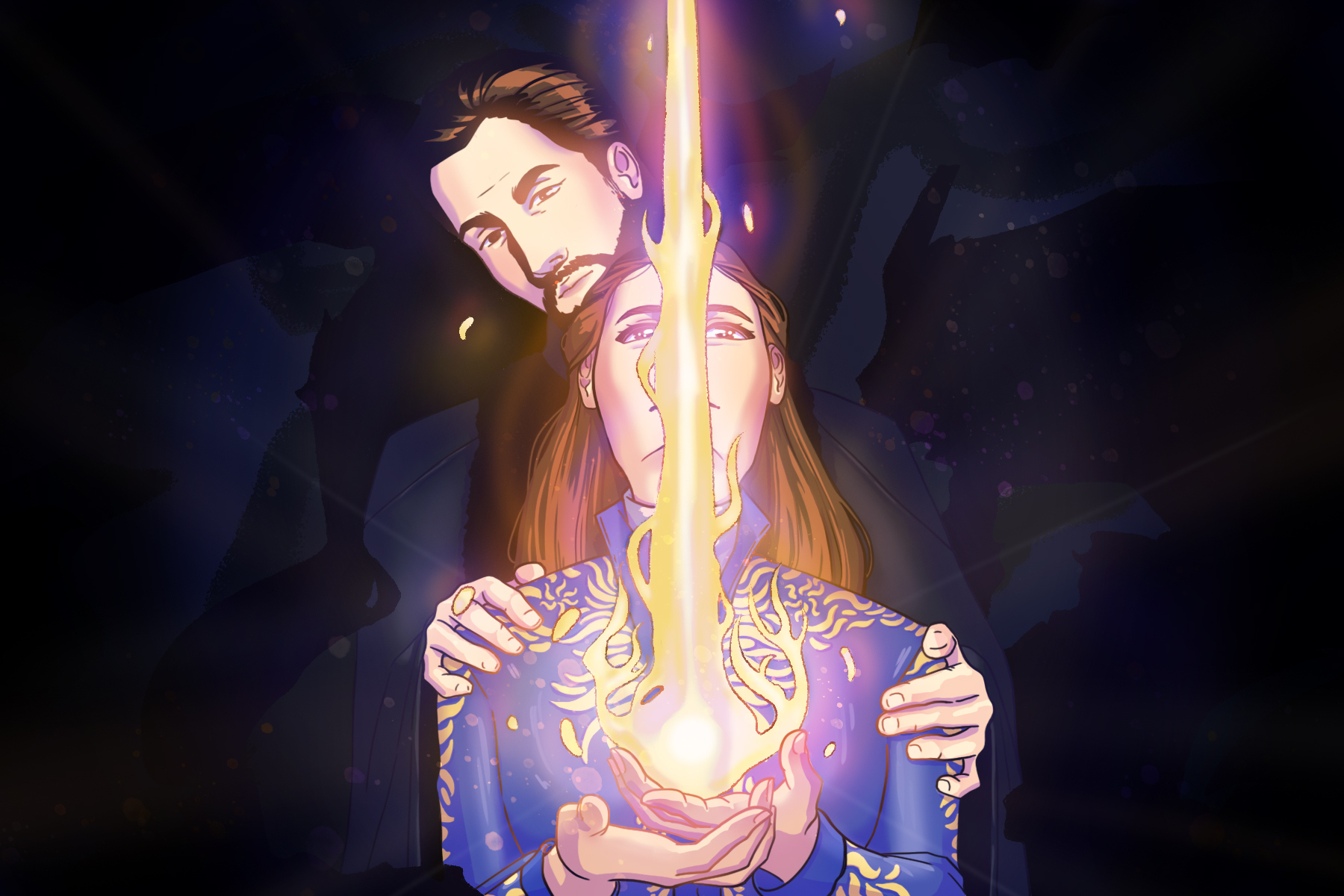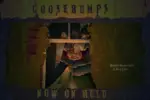“Shadow and Bone” follows the life of Alina Starkov, a soldier in a Russian-inspired fantasy kingdom named Ravka. Alina’s life changes dramatically when she discovers her ability to generate light from her hands, which has the potential to force back the magical darkness that threatens her nation’s unity.
We also follow about six other characters whose lives intersect with Alina’s and each other’s in surprising ways. The show’s remarkable pacing keeps these many storylines from feeling burdensome and gives viewers the gist of the action without dwelling too much on the intricacies of the “Shadow and Bone” world.
Part of the reason “Shadow and Bone” succeeds in leaping from character to character without getting bogged down in any particular one is that it employs so many fantasy and adventure tropes — everything from a Chosen One who comes from the dirt and fears the consequences of her powers, to a love triangle, to the ability to harness nature’s elements. These crutches are not necessarily a sign of laziness or a lack of imagination, but rather of fantasy know-how. Rolling Stone’s Jenna Scherer puts it well: “This series knows that its audience is savvy to the trappings of fantasy-adventure-romance, and will gladly take entertainment value over originality.” As Scherer implies, this decision only engages viewers further into “Shadow and Bone.”
In short, “Shadow and Bone” is an “oh, that’s good,” show — the kind of show that elicits a gut-level reaction from a large swath of viewers because of the wide range of genres and emotions it addresses. According to series creator and showrunner Eric Heisserer, “Shadow and Bone” may run longer than the three seasons necessary to cover the source material, Leigh Bardugo’s trilogy of the same name. This is understandable — romance, action, comedy and drama abound, compelling viewers to lean in to the series, hungry for each new, bingeworthy episode.
The Premise
Alina Starkov and her best friend, Malyen Oretsev, grew up in an orphanage inside a desperate and deadlocked nation. Life is especially hard for Alina, who bears the unwelcome heritage of being born half-Shu. Consequently, she often faces the thoughtless prejudice of those who hate anyone with the blood of Ravka’s sworn enemy.
Alina and Mal join the ranks of Ravka’s army, where they devour disgusting porridge and watch an elite few eat fresh berries and nuts. This elite is made up of Grisha, or people with the ability to manipulate the elements around them. Think “magic” here, although the show is careful to establish that Grisha are not magical because they cannot manipulate natural elements, only harness them.
The reason Alina’s country is deadlocked in war is the Fold, a mysterious and unnaturally dark wilderness that separates East and West Ravka. The Fold covers miles of sand and is populated by monsters called volcra.
These monsters attack Alina and her crew when on a mission crossing the Fold, spurring Alina to force the volcra back by extending light from her hands. As the world realizes that Alina is the long-foretold Sun Summoner, she is not only uprooted from her comfort zone but also catches the attention of a number of dangerous and powerful individuals.
One of those people is Kaz, the leader of a criminal consort called the Crows. Kaz is determined to collect a lofty bounty on Alina’s head. He is accompanied by his spy, Inej, a loyal woman whose integrity consistently surpasses his own. Jasper, the kind of effervescent class clown no teacher ever wanted, also joins the team as Kaz’s hitman.
Cringes and Delights
In terms of overall quality, the show is a solid success. Director Lee Toland Krieger pays careful attention to characterization, making the diverse characters who populate the series feel believable. In particular, Kaz and his gang work together in often hilarious ways, gradually tipping viewers over from feeling mere psychological interest in the crew to being downright enamored.
Krieger also excels in pacing. His attention to what is strictly necessary allows viewers to immerse themselves in the world of “Shadow and Bone” without needing to take copious notes about the intricate fantasy realm. In the words of NPR’s Glen Weldon, “We weave from one character to the next at the exact moment we find ourselves growing curious about what they’ve been up to since we last saw them.” This pacing allows viewers to forget that they are watching a complicated and foreign world and simply immerse themselves inside it.
The actors of “Shadow and Bone” also engage viewers in the story. Jessica Mei Li, who stars as Alina, delivers her lines with a combination of sadness and desperate optimism, as if Alina views obstacles as opportunities, a survival mechanism forged in her years at the orphanage. Freddy Carter, who plays Kaz, also offers an exceptional performance, making the character’s grim commitment brim with authenticity. Part of the reason viewers may believe Carter’s stone-cold attitude may be due to costume design, and still more may be due to the harsh bone structure of Carter’s own face. Still, even without these added benefits, the actor’s jaw-clenched expressions of determination and apathy are terribly convincing. The deliciousness of his performance evokes a traditional Wes Anderson villain.
Visually, the series is a dark rainforest of color, sound and composition. The cinematographers and set designers deserve particular attention, as the layout of many scenes mimics the themes at play within them: light versus darkness and power versus weakness. The result is a stark yet luxurious image.
A few cheesy moments remind the viewer they are watching a contrived and somewhat silly world, but like a few dark spots on a mostly ripe banana, these moments never quite manage to spoil the experience. In particular, the series’s dialogue and symbolism may cause non-romantics to roll their eyes, and though it may have been impossible for the editors of “Shadow and Bone” to avoid making Alina’s magical light blanch the faces of those around her, the result feels a little too close to a badly edited photo.
What It’s Really About
One of the major themes of “Shadow and Bone” is identity.
Throughout the series, strangers question Alina about who or what she is. Later, these questions become more personal: “How many more Ravka children need to be orphaned in this war because you are afraid to face the truth?” Alina’s trainer asks her midway through the series. And these questions are not only external, as Alina struggles to reconcile her own identity as Sun Summoner with that of a lowly misfit who only feels at home with her best friend, Mal.
Alina, Mal and others describe their friends as their true north or true home. Kaz, Inej and Jesper, meanwhile, communicate the idea slightly more subtly than their unconsciously-in-love counterparts. When Inej asks Kaz what he believes in, for example, the bandit responds that he believes in himself and his friends. “No saint ever looked out for me like you,” he says.
This idea presupposes that Alina, Mal, Inej, Kaz and Jesper are reliable “true norths” for each other’s internal compasses. However, the very plot of the series undercuts this idea. From the perspective of Kaz’s rivals or even of the customers he regularly takes advantage of, Kaz does not represent “true north” at all — if anything, his compass points roughly south.
However, the purpose of the series is not to critically question any belief. It is simply to revel in the delight that is knowing and being known by one’s friends, and daring to adventure even when the results of those endeavors skew out of control and even appear foolhardy. When watching the world of Netflix’s “Shadow and Bone,” viewers may bite their nails at each new cliffhanger, but we intuitively understand it will all work out in the end.
















